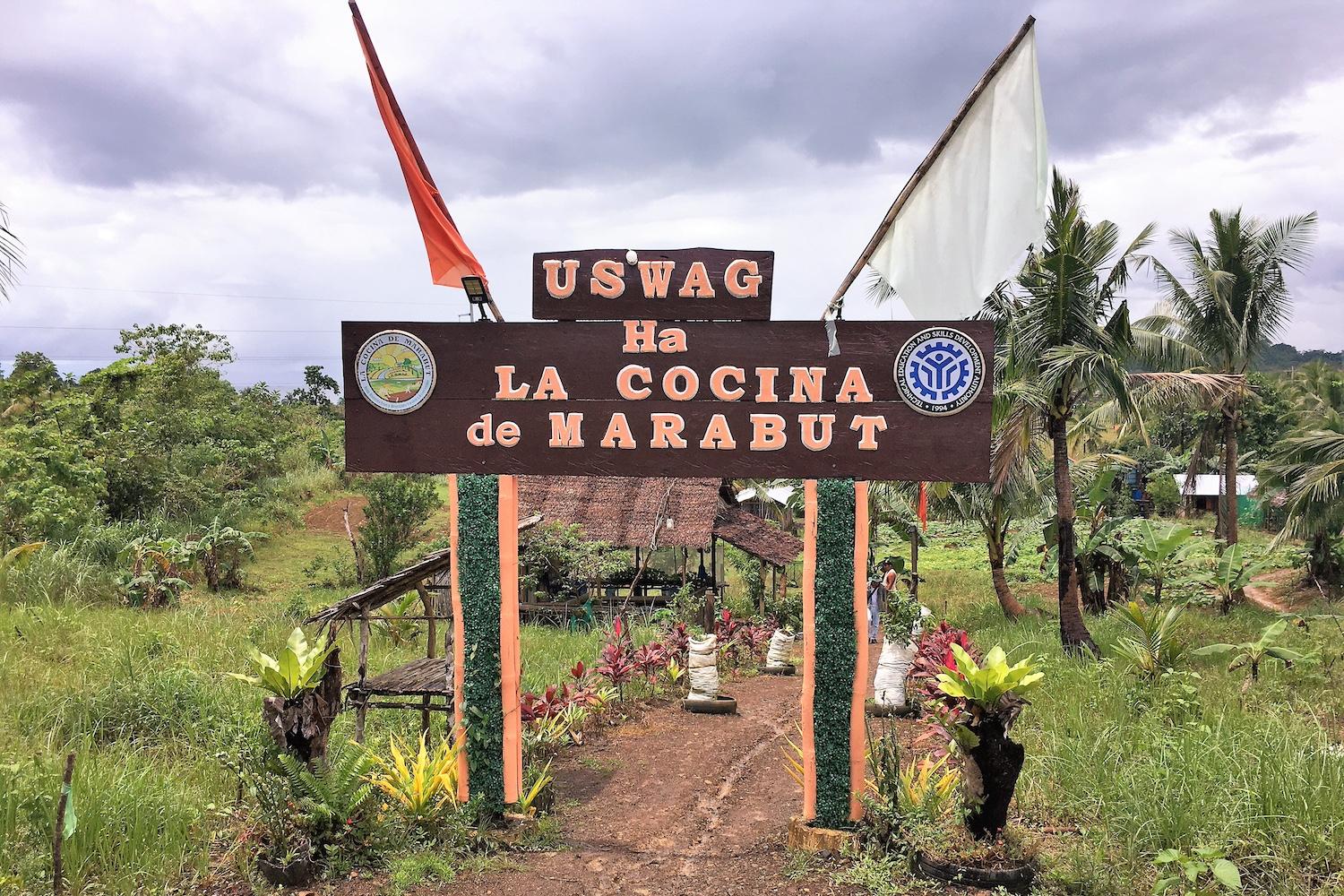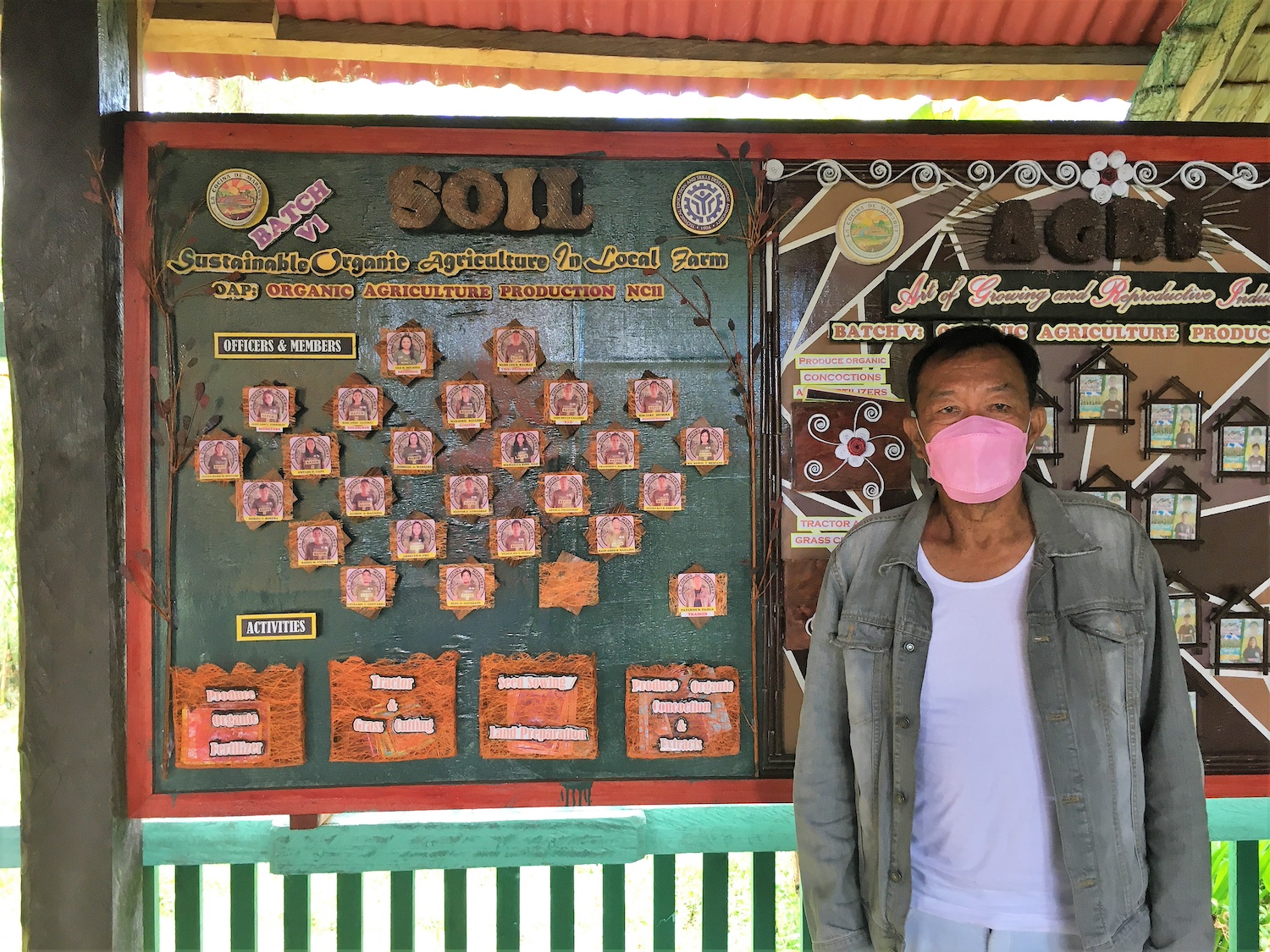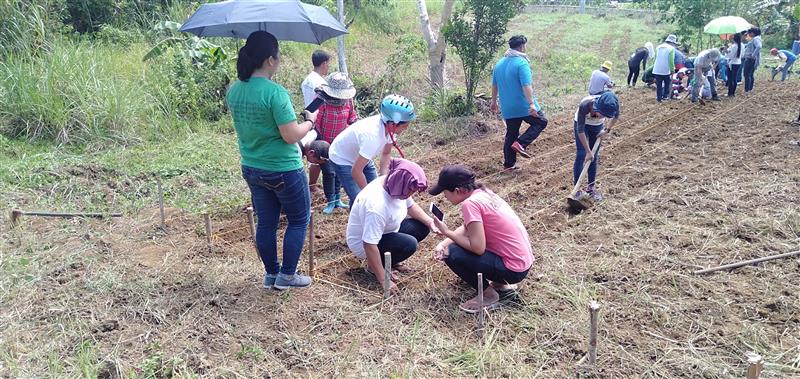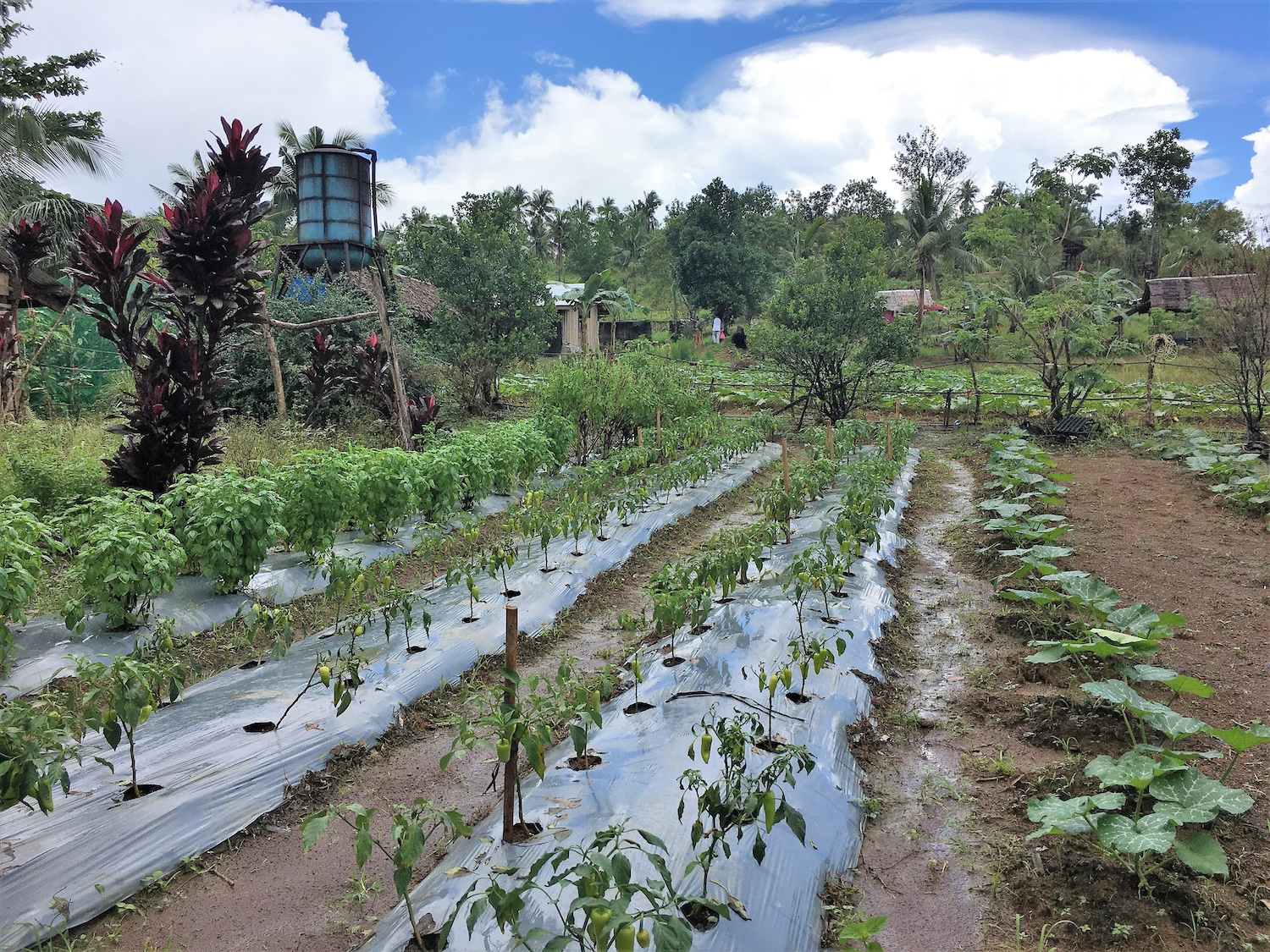
The entrance to La Cocina De Marabut — a cooperative farm, restaurant, and agricultural school — in Barangay Osmeña, the Philippines. (Image courtesy of Food for the Hungry.)
Fisherfolk have always been at the mercy of the sea, but they’re facing the brunt of the climate crisis in the Philippines. Rising ocean temperatures, dwindling fisheries, and bigger, more frequent storms mean less fish to catch and less food to go around. With the help of Food for the Hungry, former fisherman Paterno Padua is leading his community toward sustainability through organic farming instead. He is the founder and administrator of La Cocina De Marabut, a cooperative farm, restaurant and agricultural school in the fishing village of Barangay Osmeña on the island of Samar.
“We were what you call, in a hand-to-mouth existence,” Padua said, speaking of life before La Cocina De Marabut. He decided to organize a group of fisherfolk from his community into a farming association because he saw farming as less risky than fishing, which he said comes with a lot of stress and problems outside of fisherfolk’s control.
One such problem was Super Typhoon Haiyan in 2013. The Category 5 storm, known as Yolanda in the Philippines, laid waste to Samar. With their livelihoods destroyed, community members were forced to start over.
Switching to agriculture created an opportunity for fisherfolk to gain some control and see real results from their efforts. “In farming, you are able to see your crops,” Padua said. “You are able to know how your plants bear fruit because you can see them.”

That’s not to say that the transition came without challenges. Fishing and farming are worlds apart, so fisherfolk who wanted to make the switch needed training and access to agricultural technology, Padua said. While the climate crisis made fishing untenable for many, farming also comes with its share of climate-related complications. Climate change is the No. 1 challenge the cooperative’s farmers now face, he said.
“Not all crops can be planted because of the weather,” Padua said. “Sometimes it’s too rainy, sometimes the weather is too hot.”
But support and training from Food for the Hungry made the difference. It helped the cooperative learn the basics and how to navigate agriculture amid extreme weather. Adapting to the climate crisis means they have to design their planting for high temperatures and heavy rains, something they learned from the training, Padua said. It’s an important consideration as the island country is more vulnerable to climate impacts like extreme storms and rising sea levels, despite contributing relatively little to climate change.
“Because of training and new technology, we can now plant crops to withstand even if it’s too rainy or too hot,” he said. “We learned the correct techniques.”
Those techniques aren’t just about adapting, they’re also about contributing less environmental harm to be part of the solution. Alfonso "Al" Palada is a graduate of La Cocina de Marabut Farm School who shares his knowledge with farmers in the community as a field officer for Food for the Hungry. He said he encourages farmers to use organic fertilizers instead of synthetic ones to protect against environmental degradation.

“At the end of the day, climate change is happening, and they're trying to do what they can on the ground to help mitigate its effects because they were the victims of such things,” said Grace Ladaga, communications and advocacy officer at Food for the Hungry.
The transition to organic farming is also a boon for fighting food scarcity and elevating incomes. Produce from La Cocina de Marabut is not only used in its restaurant and sold to the community, but it also helps feed community members through the Philippines Department of Social Welfare and Development’s anti-hunger programs.
Additionally, the restaurant creates jobs and attracts tourists interested in organic fare and farming. And the agricultural school at La Cocina de Marabut, which has graduated 284 students, generates income that can be fed back into the local community.
“I shared [my experience] with the other farmers,” Palada said, explaining that his story inspired them to attend the school. “Now they have graduated already. They got a national certificate … and they are already self-employed and are applying their learnings to their family, in their household.”

The agricultural training and support provided by Food for the Hungry were instrumental in uplifting the community and changing their lives, Padua said. These outcomes speak to the importance of investing in climate adaptation, which generates results equal to four times the amount spent, according to the United Nations. But it isn’t just about throwing money at climate change. Local people must be empowered with skills and agency, just as Padua was with La Cocina de Marabut. Now, he said he aims to help other farming associations replicate his success.
“There are a lot of people who go to me and say, ‘Sir Pat, what are you doing differently from us because we experienced the same things. We experienced the tragedy of Typhoon Yolanda. Why is it now your life is different?’” he said.
In response, Padua points to the importance of strict organization, commitment and sustainability. He also prioritizes learning, adapting his processes based on what he sees while visiting farmer associations on other islands.
“I was able to build a restaurant. I was able to buy a vehicle. I now have a farm school,” he said of how this approach to farming changed his life. “In just six years, I achieved all that.”
Editor's note: Portions of the interview responses for this article were given in Tagalog. Translation was provided by Food for the Hungry.

Riya Anne Polcastro is an author, photographer and adventurer based out of Baja California Sur, México. She enjoys writing just about anything, from gritty fiction to business and environmental issues. She is especially interested in how sustainability can be harnessed to encourage economic and environmental equity between the Global South and North. One day she hopes to travel the world with nothing but a backpack and her trusty laptop.














